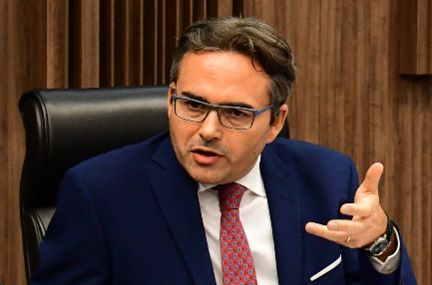Studying at the University of Verona
Here you can find information on the organisational aspects of the Programme, lecture timetables, learning activities and useful contact details for your time at the University, from enrolment to graduation.
Academic calendar
The academic calendar shows the deadlines and scheduled events that are relevant to students, teaching and technical-administrative staff of the University. Public holidays and University closures are also indicated. The academic year normally begins on 1 October each year and ends on 30 September of the following year.
Course calendar
The Academic Calendar sets out the degree programme lecture and exam timetables, as well as the relevant university closure dates..
| Period | From | To |
|---|---|---|
| Primo Semestre Triennali | Sep 18, 2017 | Jan 12, 2018 |
| Secondo Semestre Triennali | Feb 19, 2018 | Jun 1, 2018 |
| Corsi intensivi estivi (Alba di Canazei) | Jul 9, 2018 | Aug 3, 2018 |
| Session | From | To |
|---|---|---|
| Prove Parziali Primo Semestre | Nov 6, 2017 | Nov 10, 2017 |
| Esami Sessione Invernale triennali 2017 | Jan 15, 2018 | Feb 16, 2018 |
| Prove Parziali Secondo Semestre | Apr 9, 2018 | Apr 13, 2018 |
| Esame sessione estiva triennali | Jun 4, 2018 | Jul 6, 2018 |
| Esami sessione autunnale 2018 | Aug 27, 2018 | Sep 14, 2018 |
| Session | From | To |
|---|---|---|
| Lauree sessione autunnale (validità a.a. 2016/17) | Nov 27, 2017 | Nov 28, 2017 |
| Lauree sessione invernale (validità a.a. 2016/17) | Apr 4, 2018 | Apr 6, 2018 |
| Lauree sessione estiva (validità a.a. 2017/18) | Sep 10, 2018 | Sep 11, 2018 |
| Period | From | To |
|---|---|---|
| All Saints Day | Nov 1, 2017 | Nov 1, 2017 |
| Immaculate Conception | Dec 8, 2017 | Dec 8, 2017 |
| attività sospese (Natale) | Dec 23, 2017 | Jan 7, 2018 |
| Easter break | Mar 30, 2018 | Apr 3, 2018 |
| Liberation Day | Apr 25, 2018 | Apr 25, 2018 |
| attività sospese (Festa dei lavoratori) | Apr 30, 2018 | Apr 30, 2018 |
| Labour Day | May 1, 2018 | May 1, 2018 |
| Festa Patronale | May 21, 2018 | May 21, 2018 |
| attività sospese estive | Aug 6, 2018 | Aug 24, 2018 |
Exam calendar
Exam dates and rounds are managed by the relevant Economics Teaching and Student Services Unit.
To view all the exam sessions available, please use the Exam dashboard on ESSE3.
If you forgot your login details or have problems logging in, please contact the relevant IT HelpDesk, or check the login details recovery web page.
Academic staff
 roberto.fini@univr.it
roberto.fini@univr.it
 francesca.rossignoli@univr.it
francesca.rossignoli@univr.it
 0444 393941 (Ufficio Vicenza) 0458028261 (Ufficio Verona)
0444 393941 (Ufficio Vicenza) 0458028261 (Ufficio Verona)
Study Plan
The Study Plan includes all modules, teaching and learning activities that each student will need to undertake during their time at the University.
Please select your Study Plan based on your enrollment year.
1° Year
| Modules | Credits | TAF | SSD |
|---|
2° Year activated in the A.Y. 2018/2019
| Modules | Credits | TAF | SSD |
|---|
3° Year activated in the A.Y. 2019/2020
| Modules | Credits | TAF | SSD |
|---|
| Modules | Credits | TAF | SSD |
|---|
| Modules | Credits | TAF | SSD |
|---|
| Modules | Credits | TAF | SSD |
|---|
| Modules | Credits | TAF | SSD |
|---|
Legend | Type of training activity (TTA)
TAF (Type of Educational Activity) All courses and activities are classified into different types of educational activities, indicated by a letter.
Type D and Type F activities
| years | Modules | TAF | Teacher |
|---|---|---|---|
| 1° | An Introduction to the History of Economics and Business Economics | D |
Sergio Noto
(Coordinator)
|
Corporate finance (2019/2020)
Teaching code
4S00495
Teacher
Coordinator
Credits
9
Language
Italian
Scientific Disciplinary Sector (SSD)
SECS-P/09 - CORPORATE FINANCE
Period
First semester bachelor degree dal Sep 16, 2019 al Jan 10, 2020.
Learning outcomes
In the first part, the teaching aims to provide a general overview of the main elements of the financial system, analyzing the structure and characteristics of the financial markets, the credit intermediation activities and the securities brokerage services. In the second part, placing itself in the perspective of non-financial companies, the characteristics of the net present value are analyzed in the capital budgeting decisions, the choices of financial structure, the short and medium-long term financing instruments, the decisions regarding dividend payment, payment instruments for international trade and hedging of financial risks (exchange rate risk, interest rate risk and commodity risk); the topic of project finance is also discussed. At the end of the lessons the student must demonstrate to understand the peculiarities of the main components of the financial system; he or she must also be able to analyze, interpret and evaluate business decisions that have financial implications.
Program
First part
• Introduction to corporate finance
• Workbook-chapter-1
• Corporate governance
• Workbook-Chapter-2
• NPV and alternative criteria for choosing investments
• Workbook-Chapter-6
• Investment decisions
• Workbook-Chapter-7
• Risk analysis, real options and capital budgeting
• Workbook-Chapter-8
• Risk and return: lessons in the history of the capital market
• Workbook-Chapter-9
• Risk and yield: the CAPM
• Workbook-Chapter-10
• Risk, cost of capital and capital budgeting
• Workbook-Chapter-12
• Financial structure: the fundamental principles
• Workbook-Chapter-15
• Financial structure: limits on the use of debt
• Workbook-Chapter-16
• Dividends and other forms of profit distribution
• Workbook-Chapter-18
Second part
• Introduction
• Elements of theory of financial intermediation
• European Central Bank, monetary policy and interest rates
• Monetary markets
• Bond markets
• Equity markets
• Banks
• Italian management companies "SGR" and mutual funds
• Italian investment companies "SIM" and investment banks
| Author | Title | Publishing house | Year | ISBN | Notes |
|---|---|---|---|---|---|
| AA.VV | Volume Create del Corso di Finanza Aziendale (a.a. 2018-2019) | McGraw Hill | 2018 |
Examination Methods
The exam is written and is aimed at ascertaining the knowledge of the topics in the program. It consists of 4 questions (theoretical questions and exercises). The duration of the test varies from a minimum of an hour and a half to a maximum of two hours.
There will be a mid-term exam in which the student can decide to participate. It will focus on the first part of the program.
Those students who pass the intermediate exam will have to take part in one of the sessions scheduled for the January-February 2020 session, which will focus on the second part of the course.
The test on the second part of the program also consists of a paper with 2 questions (theoretical questions and exercises) and has a duration ranging from a minimum of an hour and a half to a maximum of two hours.
Compared to the final grade, the result achieved in the intermediate test will have a weight equal to 1/2 and the result of the second test will have a weight equal to 1/2. The final grade will result from the average of the intermediate and second test marks; this average will be rounded up if the decimal fraction is equal to or greater than 0.50, otherwise by default. It is specified that, in order to pass the exam, the grade obtained in the test on the second part of the program must be at least 18/30.
The Student may decide, if he deems it appropriate, to refuse the intermediate test grade. The related communication must be sent to the e-mail address elisa.giaretta@univr.it by the date published in the relevant notice containing the results of the test. In case of refusal of the intermediate test the student must obviously take the exam on the whole program.
Career prospects
Module/Programme news
News for students
There you will find information, resources and services useful during your time at the University (Student’s exam record, your study plan on ESSE3, Distance Learning courses, university email account, office forms, administrative procedures, etc.). You can log into MyUnivr with your GIA login details: only in this way will you be able to receive notification of all the notices from your teachers and your secretariat via email and also via the Univr app.
Graduation
List of thesis proposals
| theses proposals | Research area |
|---|---|
| Tesi di laurea - Il credit scoring | Statistics - Foundational and philosophical topics |






























